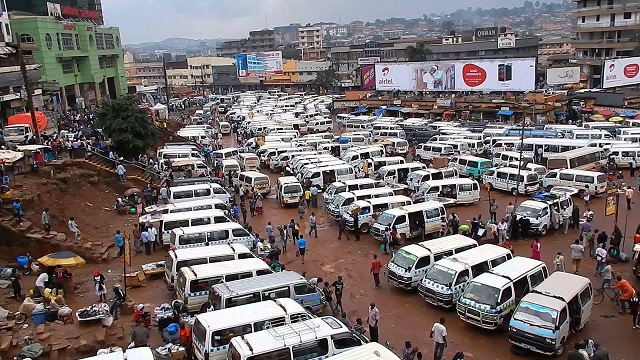
Kampala, Uganda | THE INDEPENDENT | Most of the public places in Kampala contract security personnel to search people entering their premises for safety reasons. Some of the buildings are equipped with metal detectors, which scan people accessing the buildings to ensure nobody smuggles in dangerous weapons or explosives.
At some of the buildings, security guards are expected to do a physical search in the bags of those accessing the premises and conduct body searches. However, a mini survey by URN exposed security lapses at most of the public spaces. In some of the places like Taxi and Bus parks nobody checks those coming in.
At some of the banks, supermarkets and shopping malls that are mannered by private security guards people are barely checked. Some of the places observed include Centenary Bank Makerere Branch, Tuskys Supermarket Wandegeya, Pioneer Mall along Kampala road and DFCU branch opposite Mega standard supermarket. At pioneer mall, two private security guards man a walk through metal detector.
However, the guards only check some of the people walking through the detector with bags. The situation isn’t any different at Centenary bank Makerere university branch. A security guard told URN on condition of anonymity that some of the guards reluctantly check people especially when they are tired given the long working hours.
He also noted that of the familiar customers go unchecked or without much scrutiny since they are known to the guards. A security guard at Centenary bank headquarters on Mapeera house said each of the guards works a shift of 12 hour the place of their deployment.
Ibrah Isabirye, who our reporter found at Pioneer mall, said the checking by the guards is inefficient save for those using walk through metal detectors.
Police Spokesperson, Fred Enanga, attributed the inefficiency of some of private guards on the nature of training they go through. He said some of the guards training for three weeks and are deployed, which is affects their operations.
He however, also blamed the business owners for the inefficiency of guards on their premises, saying they do not invest that much in their security.
Enanga also noted that whereas the guards at some of the public places are inefficient, there other place with a high level of security. He attributes this to the professionalism of the security personnel deployed by the security firms.
These include among others places like Hotel Africana, Serena, Parliament, Twin towers and Buganda road court. People accessing any of these places undergo thorough security checks before they are allowed in. In some of the places both the metal detectors and body searching are used by the guards.
Apollo Kateeba, the Acting head of Private Security and Firearms Department in Uganda Police, observes that less supervision of the guards on duty also affects their efficiency.
He says some of the guards are not even briefed on what is expected of them are their work stations, which affects their effectiveness. Kateeba explains that security personnel need to be briefed at least every other two to three hours of what they ought to do.
He says Police has started a countrywide sensitization of all directors of private security firms, managers and supervisors about work efficiency. URN reliably learnt that two private security companies including Detail Security and Demacles were recently closed due to inefficiency.
Grace Matsiko, the coordinator of Private Security Companies Association Uganda argues that private security firms have helped to improve security in the country, adding that the few cases of inefficiency shouldn’t overshadow the good private security is contributing.
He says they are working with police to establish standard operating procedures that must be followed by all private security firms. Matsiko also disclosed that the association intends to work with police to establish an academy for standardized training of all private security personnel as opposed to individual training camps.
There are an estimated 230 private security firms with close to 60,000 guards deployed in various entities around the country. 40 of these are being reviewed whether or not they have capital and human resources for their operations.
*****
URN
 The Independent Uganda: You get the Truth we Pay the Price
The Independent Uganda: You get the Truth we Pay the Price





